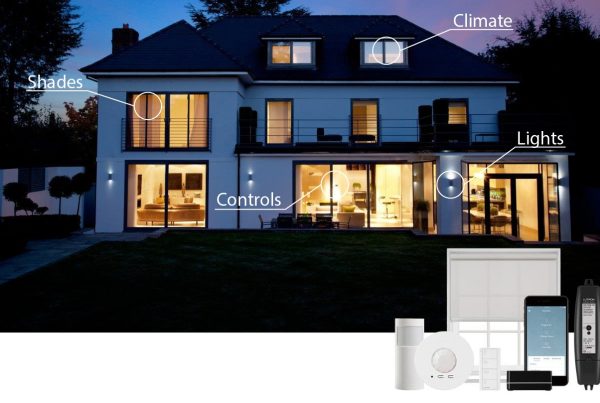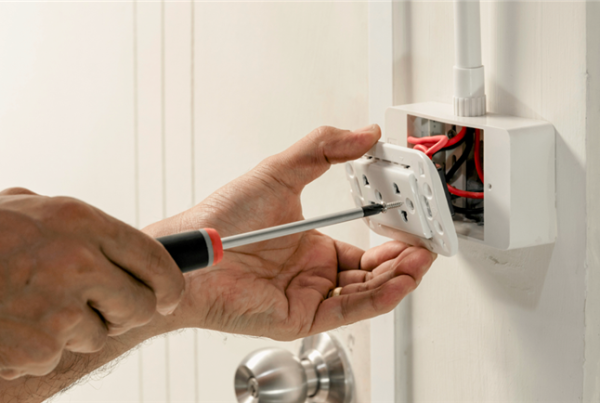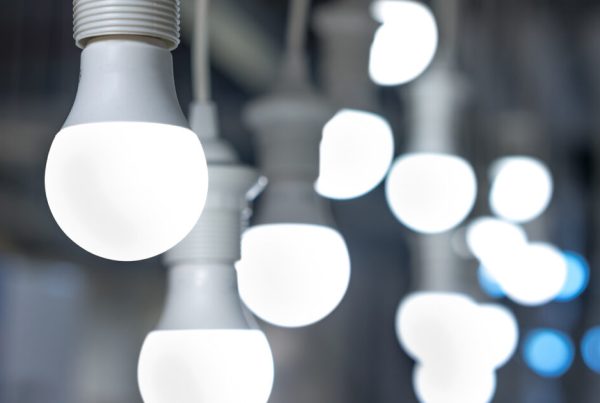Did you know that neglecting electrical safety in your home can lead to more than just blown fuses? It can result in fires.
According to the U.S. Consumer Product Safety Commission (CPSC), there are approximately 360,800 fires annually in residential structures in the US alone. These fires cause about 2,440 deaths, 11,170 injuries, and a staggering $7.48 billion in property damage. These statistics highlight the importance of taking proactive steps to protect your home from electrical hazards.
Electrical Hazards
Electrical hazards pose severe risks in both homes and workplaces. Problems such as faulty wiring, including old frayed cords and overloaded circuits, are frequent causes of electrical fires. These issues often arise when circuits cannot handle the electrical load, leading to sparks or overheating.
Regular electrical inspections help identify potential hazards early, ensuring your wiring remains safe and compliant with current codes. Waiting until something smokes or shorts out is akin to neglecting to check your car’s oil until it breaks down.
Understanding these hazards prevents accidents. When in doubt, always seek professional assistance. Experts can identify problems that might escape your notice and prevent potentially shocking surprises.
Other common causes of electrical fires include:
Extension Cords
Appliances and fixtures should be plugged directly into a power outlet. Extension cords are designed for temporary use and most are not designed to handle excessive loads. Also, when using any electric cords, make sure they do not sit under a rug or near highly flammable objects. Cords can produce too much heat and become a fire hazard.
To prevent electrical fires caused by an extension cord, it is best to use heavy-duty power strips. Make sure you have enough electrical outlets in your home so you can safely plug in your appliances without overloading any of them, and take proper precautions when decorating for the holidays.


Portable Space Heaters
Portable space heaters make winter more bearable. Despite all the comfort they offer, they are very much a fire hazard if used improperly. To ensure you stay safe while enjoying the warmth of a space heater, place it in an area away from foot traffic, as well as carpets, curtains, and other flammable materials.
Radiation-type heaters are the best option for indoor use as they are not likely to cause fire through direct contact with common household items. Always shut down and unplug space heaters when you’re done using them.
Outdated Outlets, Switches, and Wiring
If you live in a property that’s more than 20 years old, there’s a chance that your electrical system needs an overhaul. Faulty wirings, worn-out sockets, and switches and outlets with loose wires behind them are just a few issues that could lead to an accident if not checked properly.
You can tell you’re having electrical problems if you’re constantly having issues with the circuit breaker, you smell a burning odor, your lights are flickering, or you experience sparks from outlets. To make sure your home is safe from possible mishaps, you need to call a licensed electrician to check out your electrical system and replace old wirings and outlets.

Indoor Electrical Safety Tips
Inspecting and Maintaining Electrical Cords and Outlets
Schedule regular checks on electrical cords and outlets. Look for signs of wear, like fraying wires or cracked outlets, which can lead to fires or shocks. Also, avoid overloading outlets with multiple devices to prevent strain on the electrical system and minimize overheating risks.
Using Appliances Safely
Follow manufacturer guidelines when using appliances to ensure safe operation. Unplug appliances when not in use to save energy and reduce the risk of electrical discharge or short circuits. This practice enhances safety and prolongs the lifespan of your appliances.
Handling Electrical Devices Near Water

When it comes to using electrical devices in wet or damp areas, caution is key. Water and electricity don’t mix well. Even small amounts of moisture can create a path for electricity to travel, potentially causing electrocution. To stay safe:
- Keep Your Hands Dry: Always ensure your hands are dry before handling electrical devices.
- Avoid Water Sources: Never use electrical devices near pools, sinks, or other water sources without taking proper precautions.
Childproofing Electrical Outlets
In homes with young children, it’s crucial to childproof electrical outlets to prevent accidents. Here’s how:
- Use Safety Caps or Covers: Install safety caps or outlet covers to prevent children from touching live electrical components.
- Educate Children: Teach children about the dangers of electricity and why they should never play with outlets.

Outdoor Electrical Safety Tips
Prepare for safe outdoor activities with these essential tips, whether sunny or rainy!
General Outdoor Safety Measures
Always be aware of buried utility lines when working outdoors to prevent accidental damage. Before starting any digging or yard work involving the ground, check for buried cables or pipes. Wear rubber-soled shoes and gloves for added protection against potential electrical hazards.
Using Electrical Equipment Outdoors
Ensure all outdoor outlets have Ground Fault Circuit Interrupters (GFCIs) for outdoor electrical safety. These devices quickly cut off power during a ground fault, reducing the risk of electric shock. Store outdoor electrical tools in a dry, secure location when not in use to shield them from moisture and potential damage.
Emergency Preparedness
Knowing your home’s electrical system starts with identifying and correctly labeling the breaker box. This box serves as the central hub, regulating the flow of electricity throughout your home. Locating its position and each switch’s function enables swift responses to electrical issues or emergencies.
Responding to Electrical Emergencies
During power outages, remain calm and use flashlights instead of candles to mitigate fire risks. Know how to deactivate power to affected areas to minimize potential damage or harm. In cases involving electrical shocks or fires, prioritize safety by refraining from contact with affected areas or individuals until the power is safely disconnected.
Always keep a fire extinguisher accessible and understand its proper use.
Final Thoughts
Creating a safe electrical environment is a collaborative effort where you and your electrician play crucial roles. Keep up with regular inspections and maintenance to protect your family and home. After all, who wouldn’t want peace of mind when flipping switches and avoiding sparks?
Stay safe, stay informed, and don’t hesitate to contact professionals when necessary!





